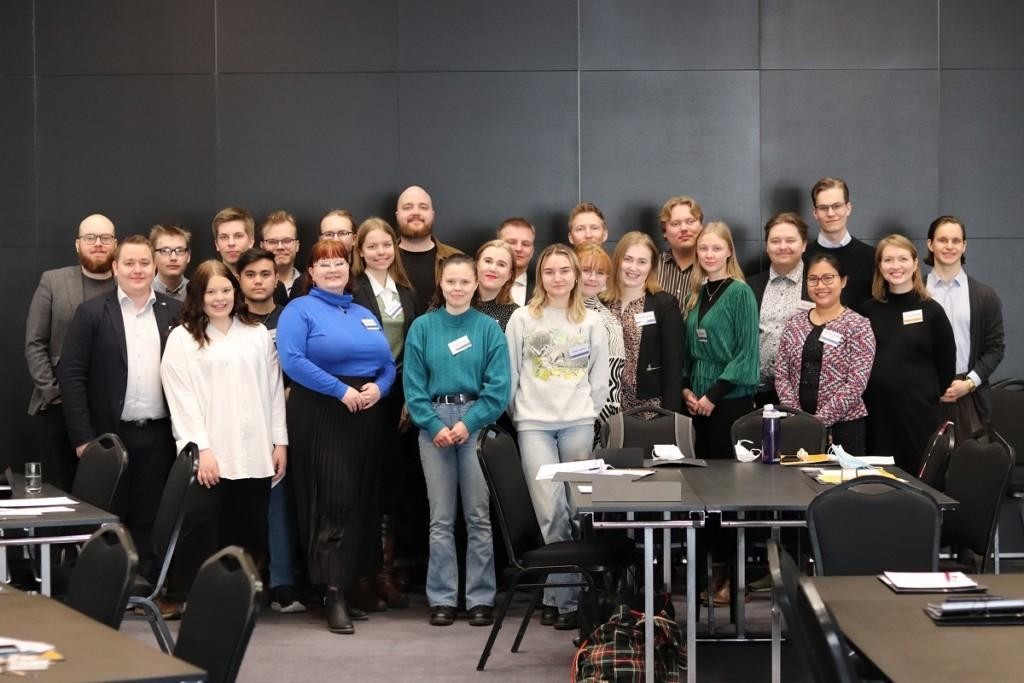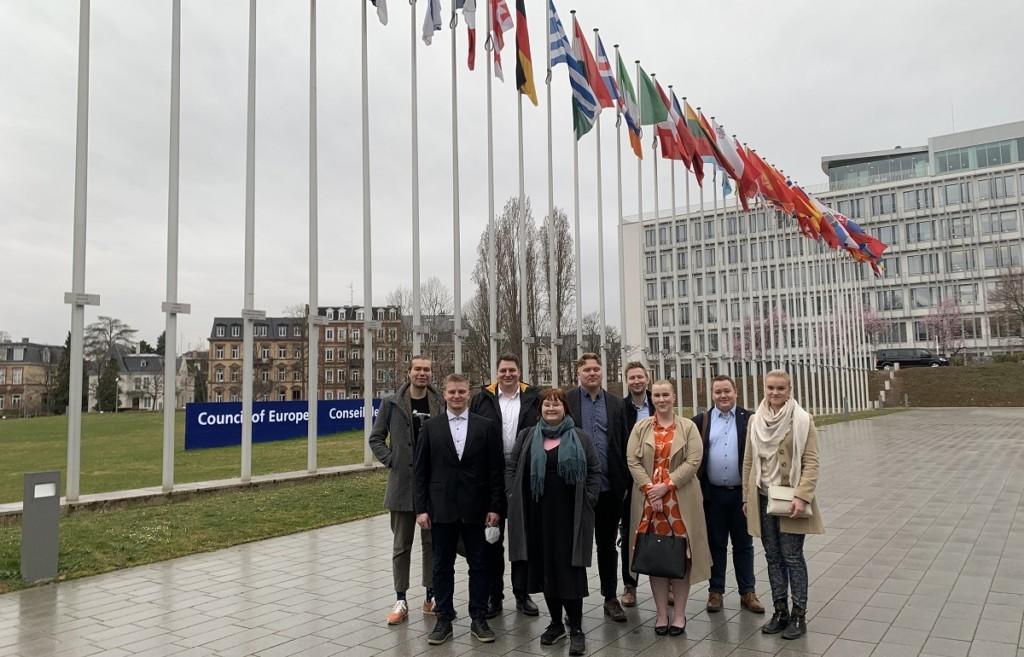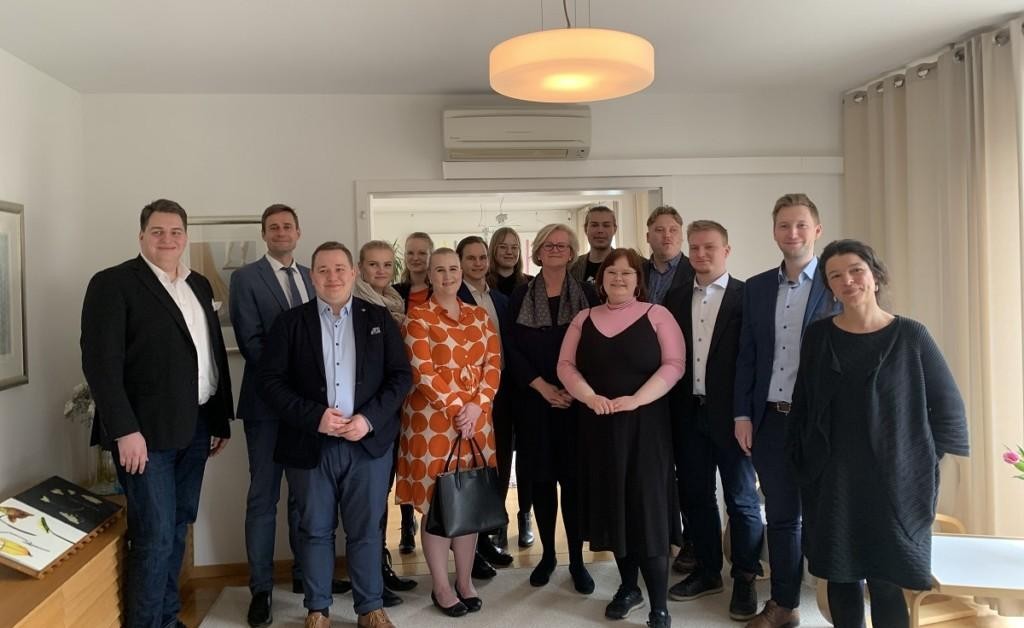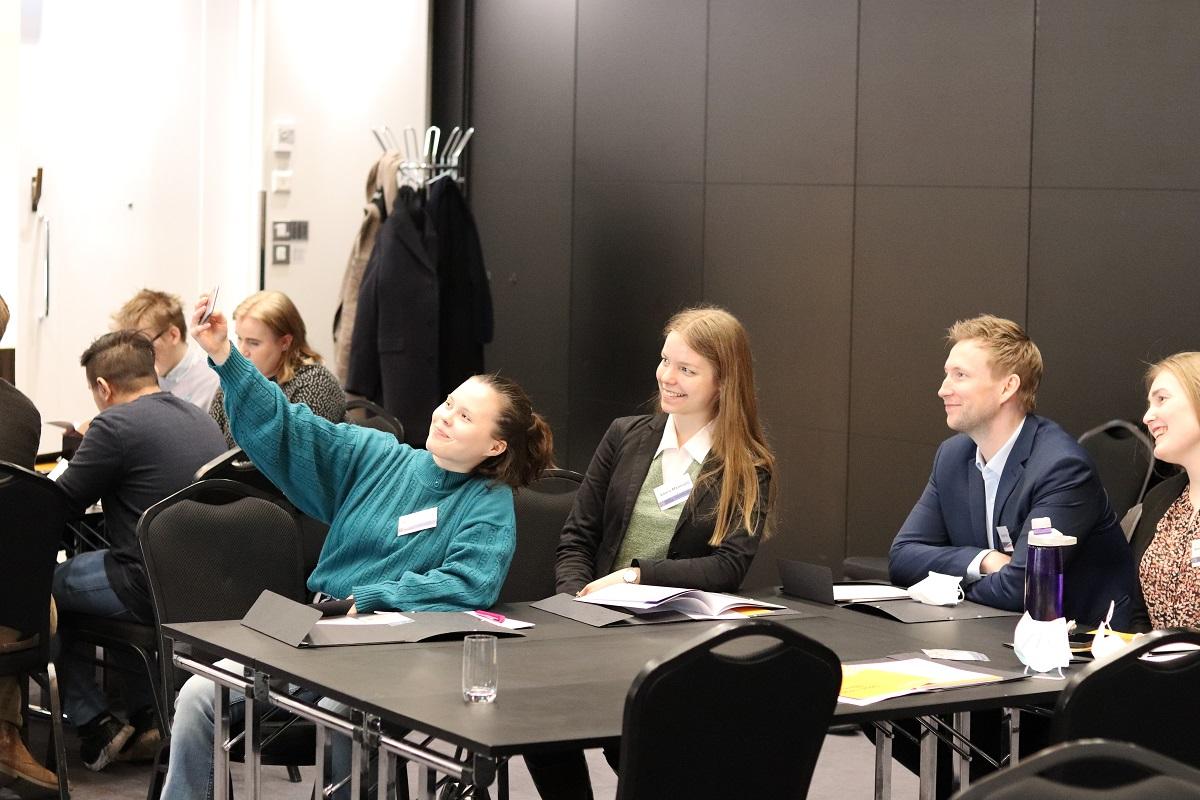Demo Finland’s Democracy Academy brought together altogether 26 youth from Finnish political parties to learn, discuss and share experiences on democracy and especially the alarming state of democracy around the world.
Participants representing youth or student organisations from all parliamentary parties got an in-depth overview of democracy issues in expert presentations, panel discussions and debates. In addition to discussions on democratic decline and how to support democracy, a deeper look was taken into the situations in Myanmar, Zambia and Brazil, as well as Demo Finland’s work to strengthen democracy. Minister for Foreign Affairs, Pekka Haavisto gave the opening speech.
The programme also included a dialogue on the state of democracy in Finland in co-operation with the Timeout Foundation (Erätauko-säätiö). Participants raised a number of concerns, such as polarisation and low voter turnout of young people, but expressed also optimism and confidence in the Finnish system. According to the feedback, the dialogue contributed to an understanding that the will to defend and strengthen democracy united participants across party lines.

The feedback from the participants also emphasised the enhanced knowledge of the state of democracy and the understanding that democracy should not be taken for granted but must be constantly strengthened. In addition, the dialogue with representatives of other parties was perceived as enriching and meaningful.
This Democracy Academy was Demo Finland’s seventh training programme for youth and student organisations of Finnish parliamentary parties. This spring, an alumni network will be set up for those who have participated in the Democracy Academy from 2020 onwards. It is a low-threshold network that meets about twice a year to hear topical presentations on the development of democracy and to discuss with other alumni. The intention is that the dialogue can continue after the Democracy Academy.
Learning more on democracy promotion in a European context
After the training weekend, one representative per party took part in a study visit to Strasbourg. The programme included visits to the institutions of the Council of Europe and the European Union and deepening the participants’ understanding on democracy and human rights issues in a European context. The Council of Europe is the continent’s leading human rights organisation, and its achievements in promoting human rights through numerous international treaties and the European Court of Human Rights are impressive. The study visit took place during a very particular time, as the Council of Europe’s Committee of Ministers decided to exclude Russia from the Council membership following Russia’s aggression against Ukraine.
The risks of a democratic decline have materialised in a very harsh way since Russia invaded Ukraine in February. The attack was the culmination of Russia’s long-standing secession from the values of the Council of Europe. During the study visit, Russia was the main topic of discussion at all meetings related to the Council of Europe, so the issues discussed at the Democracy Academy became very concrete during the visit.

The study visit was implemented in close co-operation with Finland’s Permanent Representation, and in the Representation’s meetings the participants also got a good overview of Finland’s role and priorities in the Council of Europe. One of the highlights of the study visit was also a meeting with Pauliine Koskelo, Judge at the European Court of Human Rights. She gave a presentation on how the ECHR works and discussed some significant cases that the Court has handled.
In addition to the meetings in the programme, the participants had the opportunity to get to know each other better during the trip and to continue the dialogue in informal discussions. 90% of the participants felt that the study visit enhanced dialogue and co-operation between political youth and student organisations. According to the feedback, the study visit strengthened the participants’ understanding of the role of European organisations and the link between democracy, human rights and the rule of law. The study visit also provided tools for understanding the current situation and for the participants’ work in their respective parties as well as for political debates.


